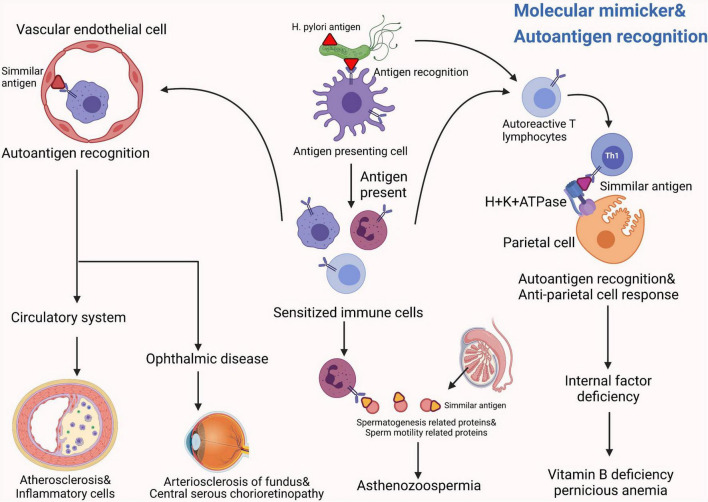FIGURE 4.
The possible common mechanisms by which H. pylori induces these systemic diseases can be summarized into two promising hypotheses: Hypotheses 2. H. pylori antigen, like the antigen components of host leads to molecular mimicker and cross-antigen reactions, which cause autoimmune attacks and relevant diseases (Chmiela and Gonciarz, 2017). Typical diseases that chiefly rely on this mechanism include: a cross reaction between the CagA antibody and the vascular wall induces atherosclerosis (Guo et al., 2007); H. pylori and gastric H+K+ATPase cross antigen contributes to vitamin B12 deficiency (Claeys et al., 1998); arteriosclerosis of fundus for autoimmune reaction induces central serous choroidal retinopathy (CSR) (Franceschi et al., 2002); cross-antigen reactivity between spermatogenesis-related proteins, sperm motility related proteins and H. pylori contributes to hypomotility of sperm (Figura et al., 2002).

